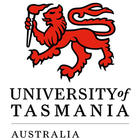Diploma of Family History
- Posted by University of Tasmania (UTAS)
- Home
- Courses
- University of Tasmania (UTAS)
- Diploma of Family History
Diploma of Family History
Family history is for everybody. We all have stories in our family tree waiting to be told. The Diploma of Family History will give you essential knowledge and tools to bring the past to life through tracing your family experiences and understanding the historical forces that shaped them. Taught by…
Categories
COURSE DESCRIPTION
Family history is for everybody. We all have stories in our family tree waiting to be told. The Diploma of Family History will give you essential knowledge and tools to bring the past to life through tracing your family experiences and understanding the historical forces that shaped them.
Taught by leading scholars in family history, and specialists in Australian, European and Asian histories, this practical course will assist you in exploring your family’s past and enable you to become more proficient and comfortable in a digital environment.
The Diploma teaches core skills in contemporary family history to research your ancestors and others, including planning and conducting online research, locating and managing historical data, and writing compelling family histories.
You’ll learn how to use oral history, family heirlooms and photographs, as well as physical and digital archives to illuminate your family’s past. The Diploma of Family History focuses on understanding individual lives in their wider historical contexts, through investigating the impacts of events such as war, convict transportation, and migration.
Learning Outcomes
- Locate, identify and analyse relevant historical information from sources available online, in archives and libraries, and in family collections.
- Organise family history data and research materials in physical and digital form.
- Evaluate, interpret and use historical information to create family histories in a variety of forms.
- Communicate historical knowledge, ideas and skills accurately, ethically and creatively in a range of contexts.
- Use relevant digital tools and technologies, such as computers, software and the internet, for researching, recording and creating family histories.
Career outcomes
Completing a Diploma of Family History develops skills and knowledge relevant to the following fields:
- family history and genealogical research
- creative writing
- non-fiction writing
- cultural and/or heritage tourism
- local and regional museums
- history and heritage consultancies
- local and community history organisations
- education
- volunteering and community activities
- archives and library information systems
- further studies in history, heritage and related fields
REQUIREMENTS
Admission to undergraduate courses at the University of Tasmania requires the completion of qualifications equivalent to the 12th year in Australia.
English language test scores: IELTS (Academic) – 6.0 (no individual band less than 5.5); TOEFL (iBT) – 72 (no skill below: Reading 10; Listening 9; Speaking 16; Writing 19); PTE Academic – 50 with no score lower than 42; UTAS English for Academic Purposes – EAP2 – 60% (no individual score less than 55%); Cambridge English C1 Advanced or B2 First – 169 with no less than 162 in any skill; Australian Education Management Group (AEMG) DEP EAP2 – Minimum overall score of 70% and no section score of less than 65%.
EDUCATIONAL INSTITUTION
The University of Tasmania was officially founded on 1st January 1890 and is located at Sandy Bay, Tasmania. In addition to the main campus at Sandy Bay, it also operates out of the Newnham Campus and the Cradle Coast Campus. The most popular courses offered are the environmental studies that include wilderness management, marine sciences and indigenous studies in Tasmanian literature. Other unconventional courses include agriculture development, studies on the community and population and ocean study programs. The university also comprises of a Music Conservatorium, Art school and a School of Clinical studies.
The University of Tasmania was officially founded on 1st January 1890 and is located at Sandy Bay, Tasmania. In addition to the main campus at Sandy Bay, it also operates out of the Newnham Campus and the Cradle Coast Campus. The most popular courses offered are the environmental studies that include wilderness management, marine sciences and indigenous studies in Tasmanian literature. Other unconventional courses include agriculture development, studies on the community and population and ocean study programs. The university also comprises of a Music Conservatorium, Art school and a School of Clinical studies.




